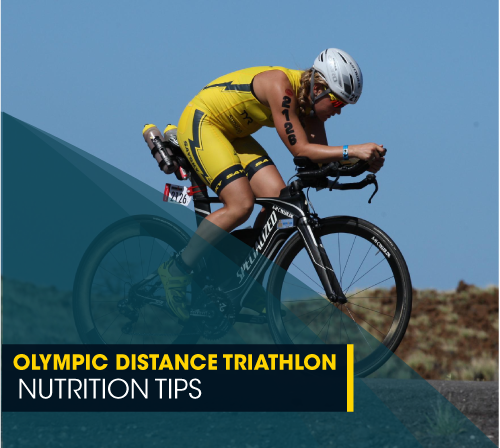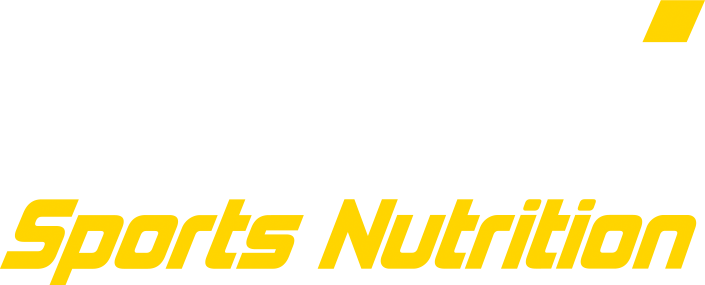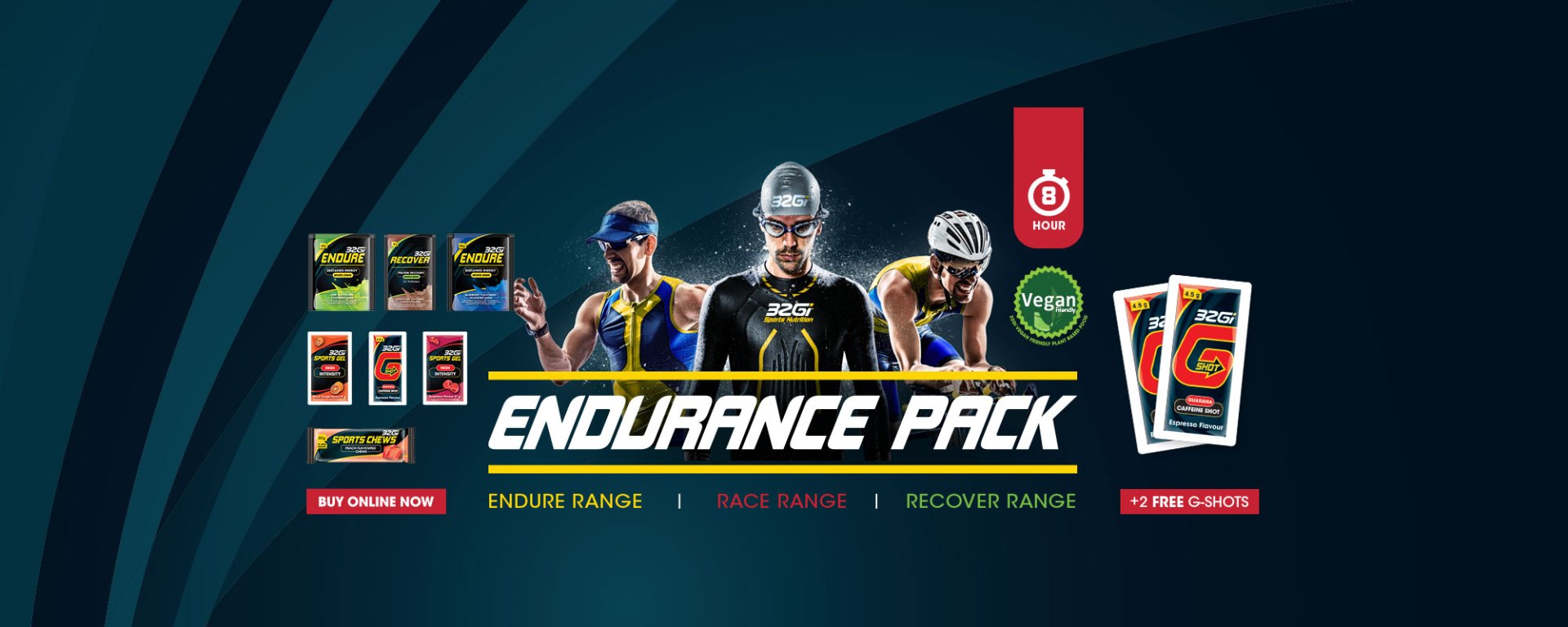
OLYMPIC DISTANCE TRIATHLON NUTRITION
Proper nutrition plays one of the most crucial roles when it comes to sports performance. What you put into your system consistently through the day will influence your ability to perform. We always tell athletes it does not matter how fit, fast or strong you are, if you do not eat correctly you will never reach your full potential.
With this in mind the question often asked is what should you eat before, during or after training or racing session? However, a step needs to be taken back here, because how you eat from the time you wake up in the morning until you go to sleep at night plays the most critical factor. It does not help to eat well only before a training or racing session when most of the time you are not eating well at all.
Here are a few guidelines to eating healthily in order to benefit properly from pre, during and post training nutrition.
Eat Foods that Agree with you
A lot of people indulge in foods purely because they enjoy them even though in the back of their minds they know it impacts them negatively. Examples of this are foods which cause digestive discomfort such as dairy, wheat or gluten foods which can cause intolerance in a variety of forms. If you do suffer from digestive discomfort or allergies you need to analyze your nutrition first and cut out negative impacting foods until you discover what is causing the issue. Your body speaks to you constantly and when food impacts you negatively you will feel it. Listen to those messages and avoid those food types. Types of food impact could be in the form of lactose intolerance, fatigue, immune system weakness, cholesterol, blood pressure or even blood glucose issues to name a few. Find the foods that agree with you and your body type and stick to them
Eat Consistently for Energy
Eating too few meals or skipping meals because you cannot eat in the mornings, or you want to lose weight can actually have the reverse effect. IF doing fasted training ensure you put complete focus into you recovery meal as this will replenish lost nutrients and stabilise the system allowing you to eat normally through the day. If you don’t focus on proper recovery post exercise and eating consistently health during the day energy levels can be completely compromised placing the body into a fatigue zone. Eating consistently of course with the correct foods will enable you to have balanced energy levels, better mental focus and a stronger immune system allowing you to perform at your best. Amount of meals you eat will depend on the unique type of diet that you follow. Higher carbohydrate consumption in a diet will usually require more frequent eating as the satiety of carbohydrates is limited. In this case rather stick to lower GI healthy carbs to provide more sustainability and ensure a wide variety of health vegetables and beneficial fruits. Those adopting a low carb higher fat and protein diet, generally eat less frequently because the satiety of such eating is prolonged. Fat of course contains more than double the amount of calories of protein and carbohydrate so it’s a given it will keep you feeling fuller for longer. Whatever diet you follow ensure that proper recovery is adhered to so that the energy and immune system are performing optimally.
Avoid excessive indulgence and stimulant foods
Eating and drinking too many indulgent foods sends your body into a spiral. Stimulants such as caffeine can have a benefit but excessive consumption will be detrimental. You should try to limit coffee or tea to a cup a day preferably in the morning, or after a workout. Alcohol actually impacts the body’s ability to recover properly and at the same time it will impair performance if consumed anywhere from 48 – 72hrs before an event. Sugar loaded foods such as chocolates, pastries and breads also cause blood glucose issues and can affect your energy cycles negatively. Fast and processed foods are a complete detriment to one’s health and should be limited as much as possible. Look at your eating over a period of a week, make a food journal if necessary and assess the quality of the foods you have consumed and then let that be a deciding factor as to whether you deserve indulgent meals.
The Percentages Game
Eating healthily is a percentages game. As an example if a person consumes 60 healthy meals a week and 5 of the 60 meals are considered to be indulgence or treat meals, it still means that over 90% of the diet is very healthy. However if you only eat 20 meals a week and 5 of them are indulgent meals it means that a quarter of your diet is out the window. Monitor your eating on a weekly basis in order to get a good snapshot of where your percentage level of healthy nutrition lies.
Drink Plenty of Fluids
It is recommended drinking at least 30-40ml’s of water per kg of bodyweight. That is for an average person who does not train. Add training and stimulants such as coffee into this equation and this need climbs drastically. For some coffee or green tea acts as a diuretic so for every cup of coffee you drink, you might want to increase your fluid intake in the form of water. When you train you need to replace lost fluid, always drink to thirst when exercising.
Eat a variety of Healthy Foods
Vary your foods in order to give yourself a wide range of nutrients. Eat plenty of vegetables at least 3-5 servings a day and some healthy fruit over and above. If you are on a low carb diet you will need to limit your fruit intake, however, there are plenty of nutrients available in vegetables which are suitable for this kind of eating. Rather opt for healthy complex low GI carbohydrates such as quinoa, wild rice and unprocessed oats or millet which provide more blood glucose stability meaning healthier energy levels. Ensure you consume healthy unsaturated fats with a focus on Omega-3 and easily digested proteins such as lean meat or vegetable proteins. Fats are an excellent source of fuel and should not be overly restricted in a diet. Medium chain triglycerides such as coconut oil are very beneficial for energy level maintenance and satiety.
Meal Prioritization
Many people tend to put a focus on dinners as the meal of the day. The truth of matter is that the biggest emphasis needs to be put on your post training recovery meal. Eating a proper recovery meal post exercise with the right portions of carbohydrate protein and fat depending on the type of exercise you have done, will set the tone for the rest of the day. Especially if training first thing in the morning.
Go Natural
Eating fast and processed foods is a definite way to create health issues for yourself. This type of food should be limited as much as possible if not avoided at all costs. Try to eat foods that are more natural and require as little cooking as possible. Keeping your diet simple and clean is the true key to providing a healthy nutrient intake and looking after your body.
The week before a race you are in a taper or mini taper period meaning reduced training volume and maximized rest and recovery depending on your bigger goals. Many athletes use shorter distance races during volume training for the longer distance races.
Many athletes put focus on increasing carbohydrate intake in this week in order to maximize their glycogen levels (natural carbohydrate stores in the body) however this isn’t something we completely agree with. It all depends on if it’s a genuine taper week or if you are still doing volume training through the week leading to the event. In the case of a proper taper volume training is reduced and by eating properly you will naturally top up your glycogen stores before the event. In the event of racing during volume training the focus should be ensuring proper recovery meals post exercise to make sure the body recover from the sessions and glycogen stores are topped up and the energy system stabilized. Ensure that you are focussing on more sleep in this week to ensure recovery is maximized.
Eating excessive carbs will only lead to weight gain, sugar dependency and digestive discomfort. Eat what the body will use no need to take in excess.
What to avoid the week leading up to your triathlon?
Processed foods such as instant microwave or quick meals such as take outs Deep fried foods completely Sugar and sugar laden foods, meaning sweets, chocolates, instant cereals, tinned fruits, honey very product states the amount of sugars contained in it on the label. Heavy milk products and bad fats such as yellow cheeses and your more problematic saturated fats like margarine’s etc. Excessively high fibre food which can cause bowel discomfort Excessive stimulants like numerous cups of coffee and tea limit to one a day if possible One of the most important factors in leading up to the event is to focus on proper hydration. Ensure you take in at least 30-40ml’s per a kg of bodyweight daily. If you consume a cup of coffee or herbal teas which can have a diuretic effect on some people then up your water intake slightly. You want to arrive at your event properly hydrated, so ensure you drink consistently through the day.
From a nutrition point of view ensure you are eating and hydrating consistently, and not skipping meals. At this point in the week you need to put even more focus on clean eating. You don’t want to land up with any stomach issues due to bad food which could leave you feeling terrible on the day.
Avoid heavy red meats, they take a long time to digest and eating it too close to the event could leave you feeling lethargic on the day.
The day before your event you want to be extremely careful of what you eat, stick to the plan above and you won’t have any digestive issues. If you have a higher carbohydrate diet then make your lunch time meal your carb meal, but do not plan on eating excessive carbohydrates the night before. You night time meal before the race should be small and simple. Make it a nice combination of carbohydrates, protein and healthy fats. Do not overload on this meal as it will leave you feeling uncomfortable and unable to sleep, especially with pre-race nerves thrown into the mix. You need to try and sleep well the night before the event.
I generally advise people to eat something simple, like a vegetable omelette on low GI bread or scrambled eggs on toast with a side salad. A chicken or fish dinner with salad and or veggies is perfect. There is no need to overdo it. The pre-race meal will be more critical to focus on. If you are an LCHF then drop the bread and just go for a vegetable omelette or almond flour pancakes with egg.
The pre-race meal is critical to the success of your event and should never be skipped. Its recommended to eat a meal of at least +- 400 Calories of stability carbohydrates with a mix of some protein and healthy fat at least 2hrs before the event so as not to spike blood sugar and to give the food time to settle before the start. This will provide sustainability and balance, which tends to work best for most athletes. If you are only able to eat 60min before the event start, then reduce the meal size to approximately 200 Calories.
If you are an athlete that is attempting the low carb fuelling route, it would be highly recommended to stock up on medium chain triglyceride fats, such as coconut oil, as it’s a non-stored but more easily accessible fuel source in the form of fat. The pre-race carb eater would also benefit from the fat consumption.
Check the 32Gi Fuel Guide on page 23 of the 32Gi Brochure
Also read the Caffeine Benefit or Drawback to see how you can use caffeine as a benefit to assist you’re your endurance event.
There is a lot of advocating by some companies to consume heavy or blood glucose spiking products just before the event starts to maximize liver glycogen levels.
We are against recommending this as it completely depends on the amount of time you are going to be spending doing the event. If you are a sub 2.5hr triathlon athlete then by all means you can take in a blood glucose spiking product immediately prior to the event assuming you HAVE tested this, however if you are going 3hrs or longer rather manage your intake differently by consuming products which don’t overload your blood glucose levels, you don’t want to leave yourself spiking and then crashing during the event or causing digestive discomfort.
Secondly, consuming a high GI concentrated solution requires a minimum amount of liquid to ensure a proper dilution ratio to minimize the risk of GI distress on the stomach. This is not really appropriate before the swim as it can fill the bladder up making it uncomfortable, secondly by not consuming the liquid with a GI spiking substance you are risking an upset stomach, nausea and dizziness which should be prevented at all costs. Ensure if you do decide to take in a gel before the swim you have practiced this in training sessions, because the last thing you want is an upset stomach and cramps on the bike leg, it’s a long way for some to the bike.
Remember what you do in training stick to in racing don’t try anything new on the day.
The big day arrives, the temperatures are lower and fluid consumption is far less as you are not sweating out that amount of liquid. Now you are taking in fewer calories which will lead to under fuelling which will ultimately lead to energy depletion. Always keep your hydration and energy requirements completely separate. If you know that you will consume the amount of calories required in the bottle under the right conditions then by all means go with it and rely on liquid energy. If the temperature is lower than desired be careful not to depend on it.
ONLY drink to thirst. Forget how many carbs or calories are in the bottle. It does ultimately help with faster fluid absorption. But don’t depend on it solely for energy. Unless you are sure you will manage to get in the appropriate amount of calories from the liquid feed
Eat small and frequently (measure your food intake by time)
Eating is the key to a decent event. Your bike is your kitchen. This is the time to feed and fuel up so that you can hit the run with energy levels stable and rearing to go. Once you are on the bike and you are in a comfort zone, meaning a point of equilibrium where aerobic heart rate is stable, breathing is regulated and you are in a rhythm, it’s time to feed. Sub 2.5hr athlete can easily get their entire race feed out of a single bottle, due to the amount of time they are racing for, however those taking a lot longer should manage it more carefully and if you are a 3hr or longer triathlete ensure you take in a little more fuel so you get to the run feeling stable.
It’s always a good idea to leave some nutrition supplies in the transition zone in case its needed prior to the run, if so then now is the time to take advantage of it if needed.
Generally, its recommend feeding in the form of fluid or something that that will provide digestive comfort when heading out on the run.
Once on the run, you don’t really want to carry anything with and there are water points on route to top up feed and hydrate.
Pre-race one can hydrate on water or 32Gi Endure drink. It will spike blood sugar and it will keep your energy levels feeling stable. Best is to take in a serving around 60min before an event as it releases for hours and will stabilise you through your event.
As far as snacks go 32Gi Foodbar & 32Gi Chews are awesome snacks to maintain stability and provide you with decent energy. If you are a high performing athlete and plan exploding out of the starting blocks, the 32Gi Gel and GShot are excellent products to get you going.
On the Bike There are a few options for fuelling on the bike. Generally, the very fast athletes that won’t be feeding much could look at 32Gi Race in the bottle as it’s a higher calorie and a fast feed for the very high intensity performer. An athlete that is going at a more controlled pace could use Endure in their bottles. The 32Gi sports chews are easily accessible in a top tube bag, they don’t melt and can be removed from packaging prior to the event which makes it easier to consume while on the go.
Transition: Leave a bottle of carb drink or some 32Gi chews or tablets in transition zone in case you want to grab something with you prior to or onto the run.On the run course there is 32Gi Sports Drink, Chews, Foodbars and GShots for you to make sure you get to the finish line with a smile.
Enjoy the event.
Good Luck Team 32Gi.












